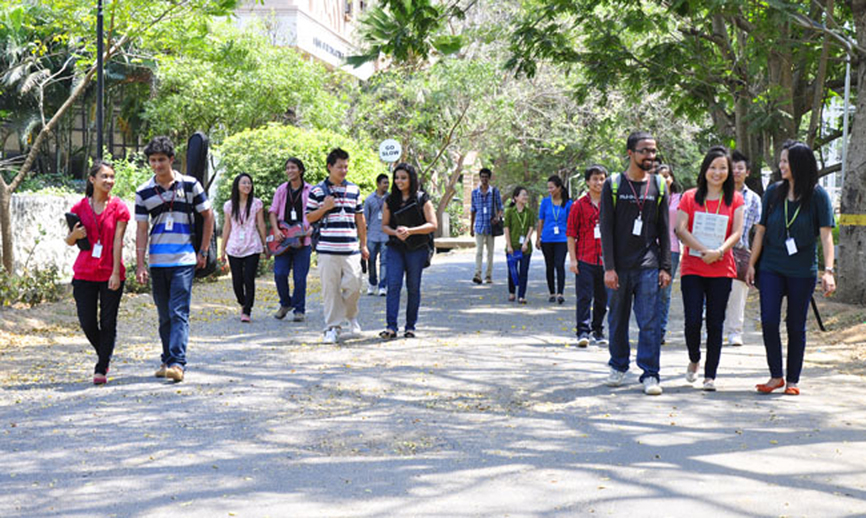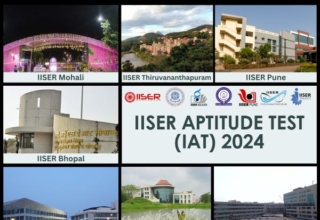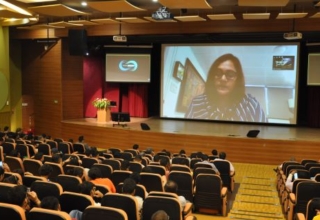
After 29 long years, Here comes the chance to redefine & reform India’s education priorities and system
In a major initiative on education sector, the union government on Republic Day this year (January 26) launched web-based consultations on website http://www.mygov.in for preparing a draft on a New Education Policy on Education in the country. A set of 33 themes have been identified, 20 in higher education and 13 in school education for public participation and discussions.
ACCORDING TO A NOTE OF THE UNION HRD MINISTRY, “The objective of the consultation process is to ensure that an inclusive, participatory and holistic approach is undertaken, which takes into consideration expert opinions, field experiences, empirical research, stakeholder feedback, as well as lessons learnt from best practices.” An advertisement from the ministry published in some dailies while inviting public participation till March 31, 2015 said consultations will start soon from villages, block and districts to state and national level. The slogan given to the initiative is ‘educate, encourage, enlighten’.
The government has meanwhile asked NCERT to complete the process of consultations on the new education policy with stakeholders by August and submit a report to it by September.
Chairing a general council meeting of the National Council of Education Research and Training (NCERT) on February 3, HRD minister Smriti Irani called upon the states and all the stakeholders to give their suggestions on the new education policy.“This exercise is to be completed by August and the report submitted by September 2015,” an official statement said.
There are 13 themes for the School Education, which include improving learning outcomes, extending outreach of Secondary and Senior Secondary education, strengthening of Vocational Education , reforming school examination systems, revamping teacher education , accelerating rural literacy with special emphasis on Women, SCs, STs & Minorities, promotion of Information and Communication Technology, new knowledge and approaches for teaching of Science and Maths, schools standards, assessment and management systems, inclusive education, promotion of Languages, Comprehensive Education and Child health.
The 20 themes for Higher Education include governance reforms , ranking of institutions and accreditation ,quality of regulation, pace setting roles of central institutions, improving State public universities, integrating skill development in higher education, promoting online courses and technology enabled learning, addressing regional, gender and social disparities, linking higher education to society, developing the best teachers, sustaining student support systems, promoting cultural integration through language, private sector partnership, financing higher education, internationalization, industry engagement to link education to employability, research and innovation and new knowledge.
The announcement fulfills the almost consensual demand for revising the existing national policy on education formulated about 29 years ago in 1986 modified somewhat in 1992. The BJP election manifesto during 2014 Lok Sabha election also had a mention of formulation of a new education policy. In fact, in the last several months, bureaucracy within the ministry was busy in scrambling pieces of models from across the world and also discussing within the government. HRD Minister Smriti Irani had earlier said that the consultation process would be exhaustive in nature and, unlike previous years when only a few officials were involved, all stakeholders, starting from children and parents from the village to the block level, would be involved in the exercise. The process could take as long as a year.
However, what is peculiar though is that it is a break from the standard procedure of policy formulation, which is causing quite a heart burn among experts. “Education is all more important because it impacts everybody. As a professor of education policy I am not happy or satisfied. New Education Policy talk started is totally chaotic beyond comprehension of educationists and policy makers. Policy making is a professional work, an art as well science and has stages, first you identify issues if there are issues, then what are the choices followed by analysis of choices done by experts. 4th stage is consultation, where you educate the beneficiary and also make them aware of existing and new objectives. It helps in policy becoming acceptable. But here we don’t know the first three stages and what happens after ‘this’ 4th stage. There are documented procedures of professional policy making,” opines Dr Veera Gupta, professor or educational policy NUEPA though not in her official capacity but as a citizen.
Gupta citing a small study from Assam said that although our enrolment at elementary school level has touched 98%, it was found that only 3-4% of girls in the age group of 18-24 entered higher education. Only 50-60% students pass senior secondary examination. “Don’t we need to know why?” She asks hinting that a larger study (scientific) needs to be undertaken to identify the real issues, country’s education planners must address instead of superficial experiential inputs of a few people. “We have to have a vision; it is skills, equity or quality learning? Unless you have valid research, how can you focus on required parameters?”
At the same time, some educationists feel the initiative provides an opportunity to pave way for reforms in school education, the need of which is felt greatly. “Today’s children know what they want. A framework is needed which will enable new age children centric curriculum not made by adults. Earlier knowledge was meant to be stored in memory but not now. It is available in gadgets, games, ebooks, social media and the web. We need to strengthen emotional quotient of children and recognize it instead of IQ because EQ is more relevant now,” says Dr Sarvesh Naidu, renowned educationist and school director at Pathways World School, Gurgaon.
Experts also say that one size fits all mindset should go. Relevance of knowledge is very important, individual aspirations need to be respected, components for individual to grow must be there and avenues created for all. There should be scope for individual schools to decide what to teach given their local factors or aspirations of clientele may be different. It would be a sort of customized education without being discriminatory or regionalizing.
Though online consultations provide a big opportunity for seeking policy interventions to many an ills that country’s education ecosystem may be facing and a free for all platform to vent their feelings, ire or suggestions, the next concrete steps would become only apparent in coming months. Till then keep making suggestions or respond to comments.











